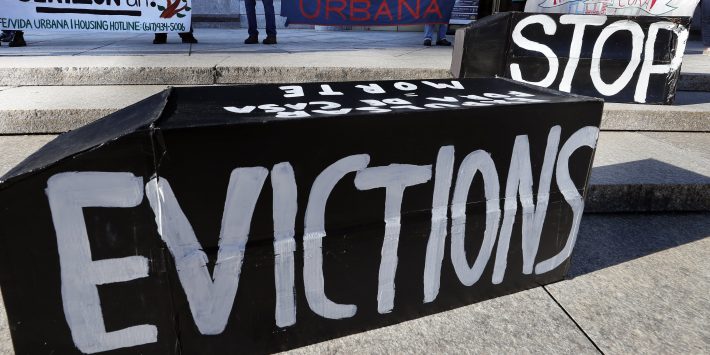
Following the Supreme Court’s decision to overturn the federal eviction moratorium issued by the Centers for Disease Control and Prevention (CDC), most parts of Pennsylvania have resumed the eviction of tenants, even as many residents still suffer the effects of the pandemic-induced recession. If you or someone you know is facing eviction, here are some ways you can find help:
- Back rent assistance is available. The Emergency Rental Assistance Program (ERAP) is available in every county in Pennsylvania. This program has millions of dollars of money available to pay rent for tenants who were unable to pay rent due to the pandemic, and some local courts have placed limited restrictions on lockout for tenants who have applied for back rent assistance. The application process may differ depending on which county you live in. Follow the link above for instructions on how to apply in your county.
- Legal services are available to assist tenants facing eviction. Tenants in Philadelphia should call the Philly Tenant Hotline at 267-443-2500. Tenants ages 60 and older throughout Pennsylvania can call SeniorLAW Center at 877-727-7529. Other tenants can consult PA Legal Aid and the PA Bar Association to find legal services available in their community.
- Landlord-tenant mediation programs are active in the following counties in Pennsylvania:
-
- Allegheny County
- Blair County
- Centre County
- Dauphin County
- Fayette County
- Lackawanna County
- Lancaster County
- Lycoming, Clinton and Tioga Counties
- Monroe County
- Northampton County
- Philadelphia County
- Union and Snyder Counties.
Check out The Housing Alliance of Pennsylvania’s Promising Practices: Landlord-Tenant Mediation to learn more about mediation and how to contact these programs. In Philadelphia, landlords are required to apply for the Emergency Rental Assistance Program and participate in mediation before they can file an eviction for nonpayment in the Philadelphia Municipal Court.
- In Philadelphia, the Renters’ Access Act will come into effect on October 13, following the bill’s passage on July 15. This act will provide transparency in the rental application process by requiring landlords to provide uniform screening criteria for prospective tenants, as well as written explanations for denial. The act will also prevent blanket exclusions of tenants based on eviction records or credit score; most saliently, this will prohibit denial of rental applications due to failure to pay rent or utilities due to COVID-19, nor due to certain eviction records. The Renters’ Access Act goes into effect with the hopes that it will curtail the prevalence of evictions in communities of color due to the pandemic. 78% of eviction filings in Philadelphia currently occur in communities of color; 49% occur in majority-black communities.
To keep up with the most recent developments in federal eviction prevention assistance, please refer to the White House press release from August 25th, as well as the release and FAQ from the United States Treasury from the same day. These resources provide further clarification on the use of self-attestation for ERAP eligibility, paying rental and utility arrearages at previous addresses, and speeding up ERAP payments to eligible households, among other helpful items.

